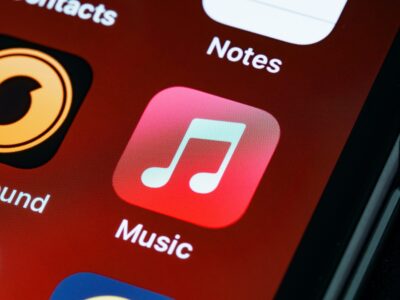Play It Again, Sam: What You Should Know About Playing Music in Your Business
November 21, 2022
By R. Benjamin Peeler, IV
Picture this: After years of hard work, you are finally opening your small business. You have gotten business loans from the bank, bought inventory, and hired your first employee. Just before you open, you think it would be a good idea to have some music playing. You put together a playlist of songs you think your customers will enjoy, buy some speakers, and hook up your mp3 player. Would you be surprised to learn that you could be sued just for playing that music? Even if you bought the song from iTunes, Amazon, or wherever else you might pay for music?
Copyright law is an old and complex beast. The current Copyright Act governs copyright law today, but the idea of copyright protection is addressed in the U.S. Constitution. But what exactly is a copyright? Put simply, a copyright is your right to protect something creative you have made. Think of it like a fence, but instead of protecting your home, it protects your ideas. More specifically, a copyright covers any original creative work that is “fixed in any tangible medium of expression.” 17 U.S.C. § 106. Basically, any original, creative idea you come up with and then record, write down, film, or in any other way make tangible, automatically gives you a copyright in that work. In general, copyright protection lasts for the life of the author, plus 70 years.
A copyright gives you the right to make copies of your work, to sell your work, to show your work, and most importantly to this discussion–in the case of sound recordings–the right to publicly perform the work. This means that only the songwriter, or someone to whom the songwriter gives permission, can play a song in public. The “in public” part is important because that is the reason you can listen to songs with your family and friends for free (or the cost of the music that you purchased), but you can open yourself up to potential liability for playing those same songs in your store.
So, what should you do if you want to create a pleasant atmosphere for your customers, but don’t want to get in trouble with an industry notorious for its litigiousness? Several companies provide broadcasting licensing services for large catalogues of music for a fee. It is always a good idea to get a license from these companies, since the penalty for publicly performing a copyrighted song can be up to $150,000 per song. An experienced attorney can provide invaluable help in navigating negotiations with these broadcast licensing companies, as well as other issues arising from the complexities of federal copyright law.
Ben Peeler is an associate attorney with Flint, Connolly, & Walker LLP who specializes in patent law, intellectual property, and commercial transaction matters.

